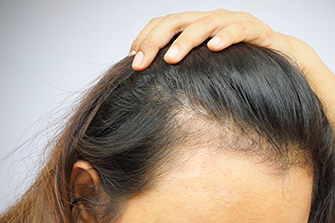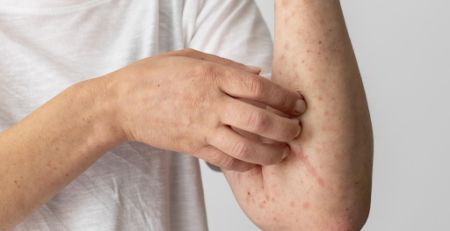From Skin Conditions to Scientific Breakthroughs
Skin, the body’s largest organ, serves as a protective barrier and a reflection of our overall health. Dermatological disorders encompass a wide range of conditions, from common ailments like acne to rare and unusual skin diseases. Understanding these conditions is crucial for effective treatment and management. This blog delves into various dermatological disorders, highlighting their causes, symptoms, and the importance of dermatological sciences in advancing treatment options.
Understanding Dermatological Disorders
Dermatological disorders are conditions that affect the skin, hair, and nails. They can be caused by a variety of factors, including genetics, environmental influences, infections, and autoimmune responses. These disorders can range from mild irritations to severe conditions that significantly impact a person’s quality of life.
Common Dermatological Disorders
Acne
One of the most prevalent skin conditions, acne primarily affects adolescents but can persist into adulthood. It occurs when hair follicles become clogged with oil and dead skin cells, leading to pimples, blackheads, and cysts.
Eczema (Atopic Dermatitis)
Eczema is characterized by inflamed, itchy skin. It often appears in childhood and can be triggered by allergens, irritants, or stress.
Psoriasis
This chronic autoimmune condition accelerates skin cell turnover, leading to thick, red patches covered with silvery scales. Psoriasis commonly affects the scalp, elbows, and knees.
Rosacea
Rosacea causes redness and visible blood vessels in the face. It may also produce small, red, pus-filled bumps. The exact cause is unknown, but factors like genetics and environmental triggers play a role.
Vitiligo
Vitiligo leads to the loss of skin pigment, resulting in white patches on various parts of the body. The condition occurs when the immune system attacks pigment cells.
Rare and Unusual Skin Disorders
Hidradenitis Suppurativa (HS)
HS is a chronic skin condition featuring lumps in places such as the armpits, groin, buttocks, and under the breasts. It occurs when hair follicles and sweat glands become blocked and inflamed.
Pemphigus
Pemphigus is a group of rare autoimmune blistering disorders that affect the skin and mucous membranes. The condition causes painful blisters and erosion.
Epidermolysis Bullosa
This group of genetic conditions causes the skin to blister easily. Even minor friction or trauma can lead to painful blisters and sore throats.
Harlequin Ichthyosis
A severe genetic disorder that results in thick, hard skin covering most of the body at birth. The skin cracks and peels, leading to serious complications.
Morgellons Disease
Characterized by the sensation of fibers or particles under the skin, Morgellons is a controversial and poorly understood condition.
The Role of Dermatologists in Managing Skin Conditions
Dermatologists are medical professionals specializing in diagnosing and treating skin, hair, and nail disorders. They play a pivotal role in managing both common and rare dermatological conditions. Through comprehensive evaluations, dermatologists can provide accurate diagnoses and develop personalized treatment plans.

Advancements in Dermatological Sciences
The field of dermatology has seen significant advancements in recent years. Research in dermatological sciences has led to the development of new treatments, improving outcomes for patients with various skin conditions. Innovations include biologic treatments for psoriasis, targeted approaches for eczema, and advanced surgical techniques for skin cancer removal.
Conclusion
Dermatological disorders, whether common or rare, can have a profound impact on individuals’ lives. Understanding these conditions and the role of dermatologists in their management is essential for effective treatment. Ongoing research in dermatological sciences continues to pave the way for better treatments and improved patient care. If you or someone you know is experiencing skin issues, consulting a qualified dermatologist can provide the necessary guidance and treatment options.
Frequently Asked Questions (FAQs)
1. What causes most skin disorders?
Skin disorders can result from a variety of factors, including genetics, environmental exposures, infections, immune system dysfunctions, and lifestyle choices. For instance, acne is often linked to hormonal changes and clogged pores, while eczema may be triggered by allergens or irritants.
2. Are rare skin conditions hereditary?
Many rare skin conditions, such as epidermolysis bullosa and harlequin ichthyosis, are genetic and inherited. These conditions often result from mutations in specific genes that affect skin structure and function.
3. How can I differentiate between common skin conditions?
While some skin conditions share similar symptoms, they often have distinguishing features. For example, psoriasis typically presents as thick, scaly patches, whereas eczema is characterized by itchy, inflamed skin. A dermatologist can provide an accurate diagnosis through examination and, if necessary, additional tests.
4. Can lifestyle changes improve skin health?
Yes, maintaining a healthy lifestyle can positively impact skin health. This includes a balanced diet, regular exercise, adequate hydration, stress management, and proper skincare routines. Avoiding known triggers, such as allergens or harsh chemicals, can also help manage certain skin conditions.
5. When should I consult a dermatologist?
It’s advisable to see a dermatologist if you experience persistent skin issues, sudden changes in your skin’s appearance, or symptoms that interfere with daily life. Early consultation can lead to timely diagnosis and effective management of skin conditions.







